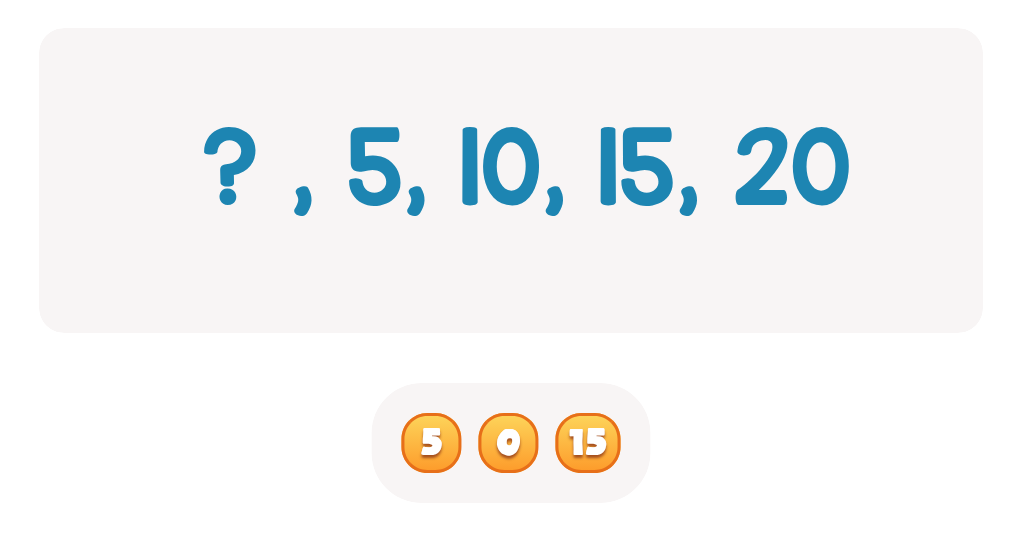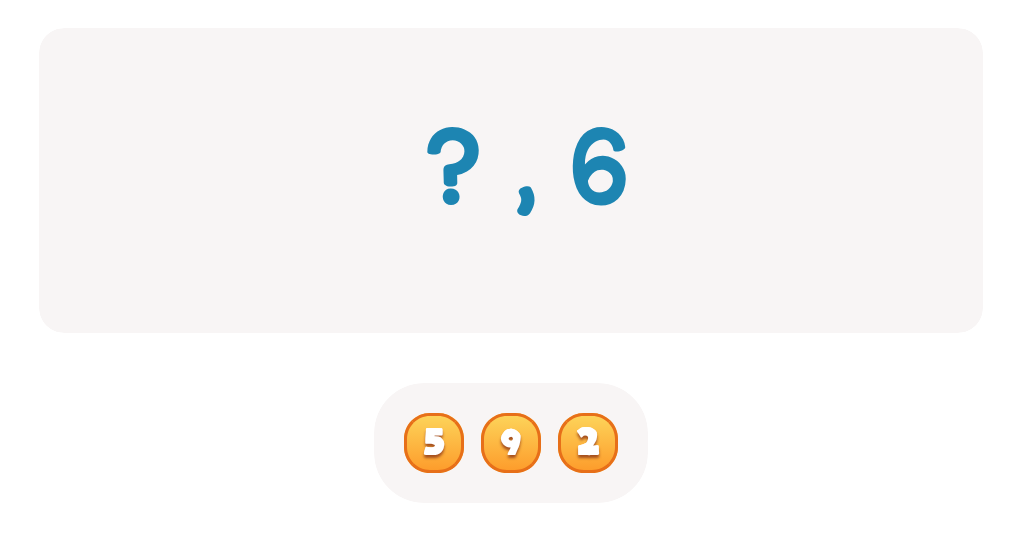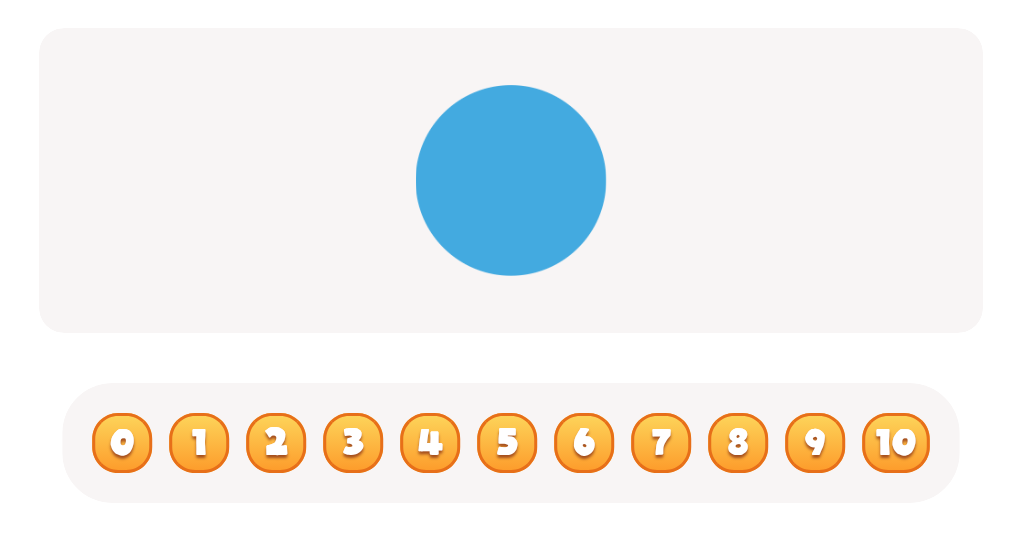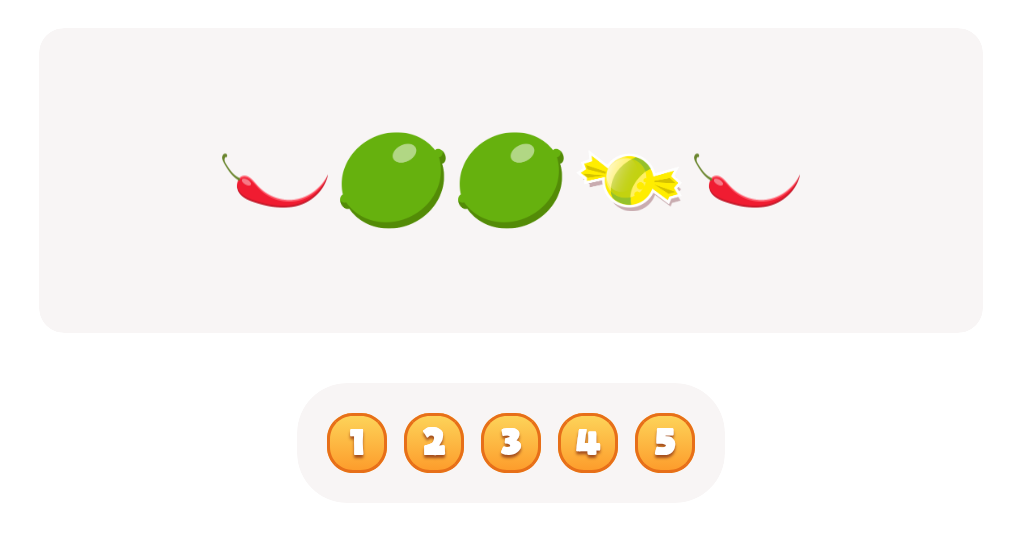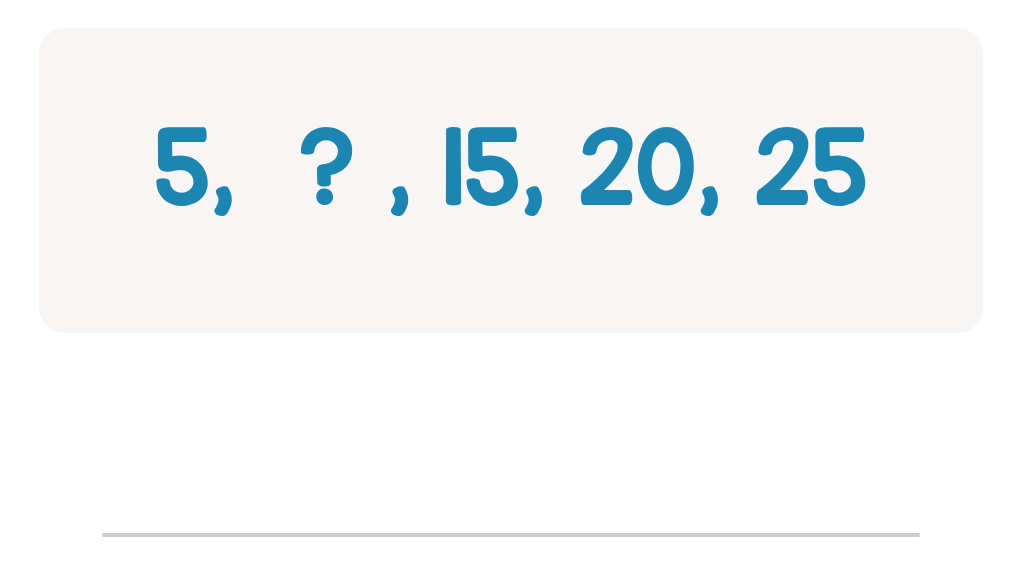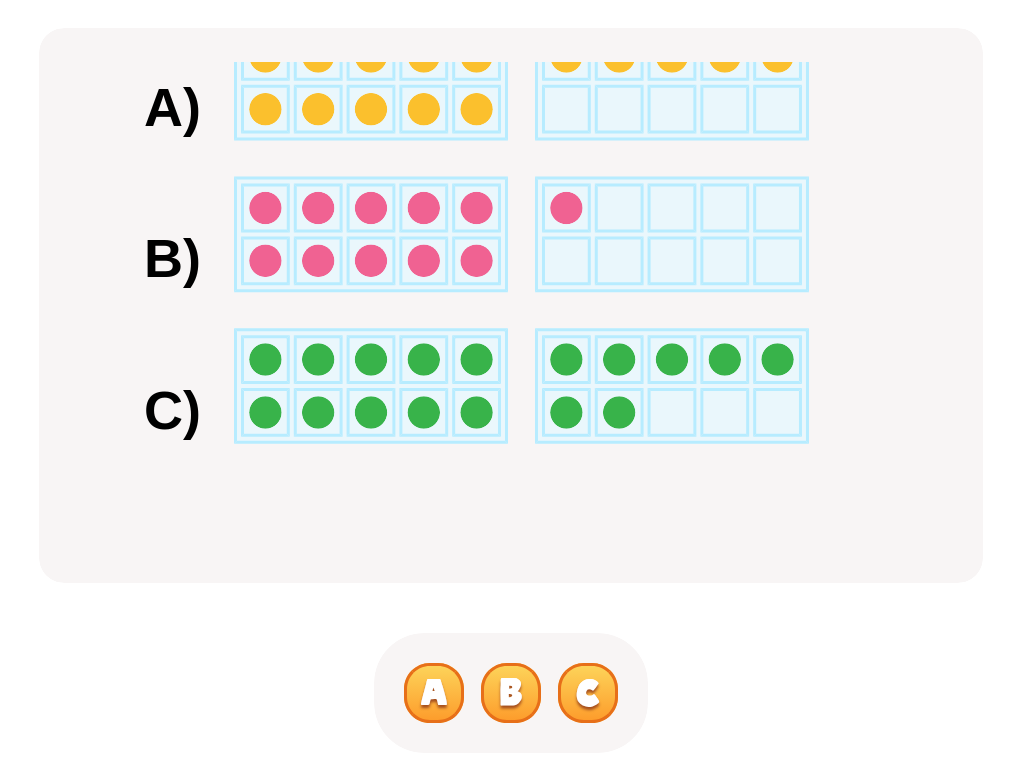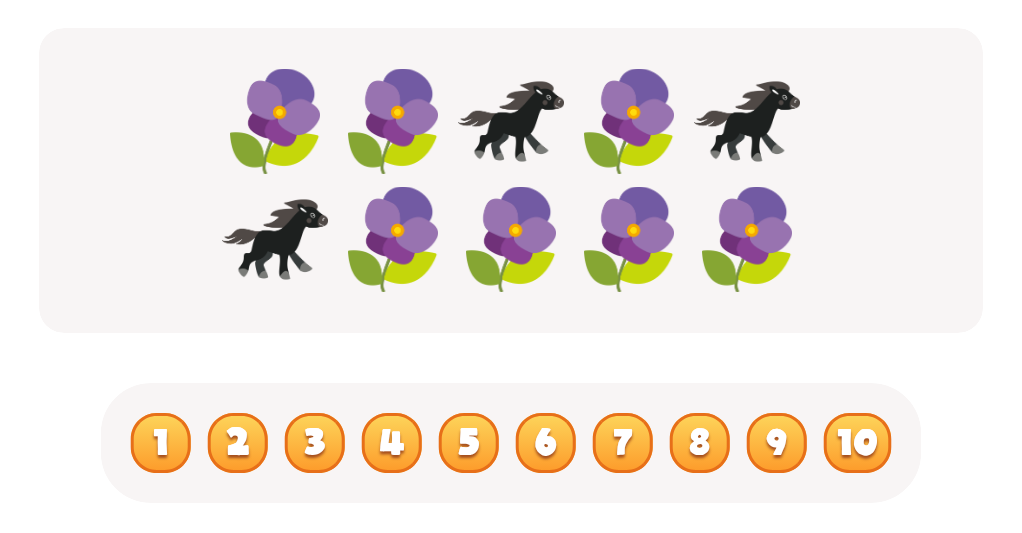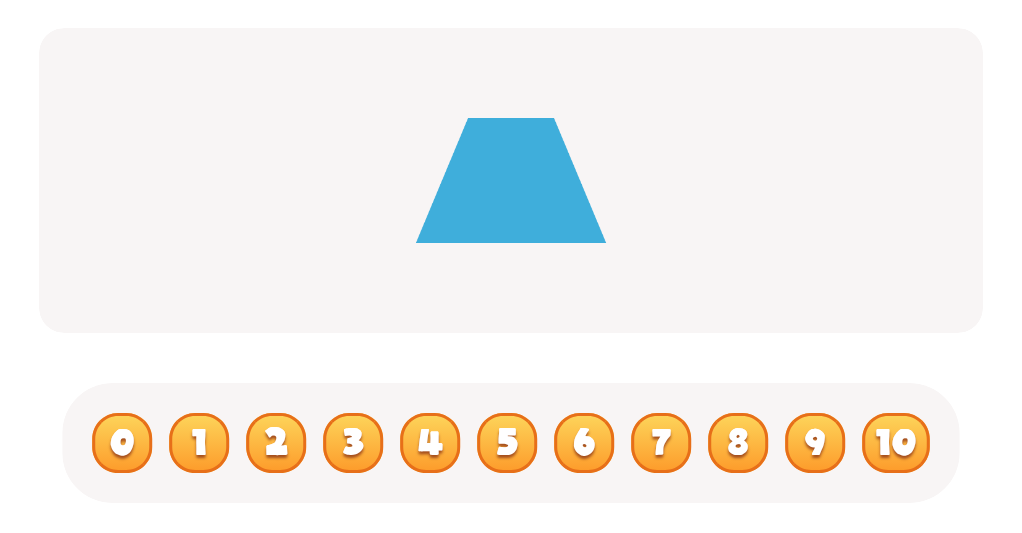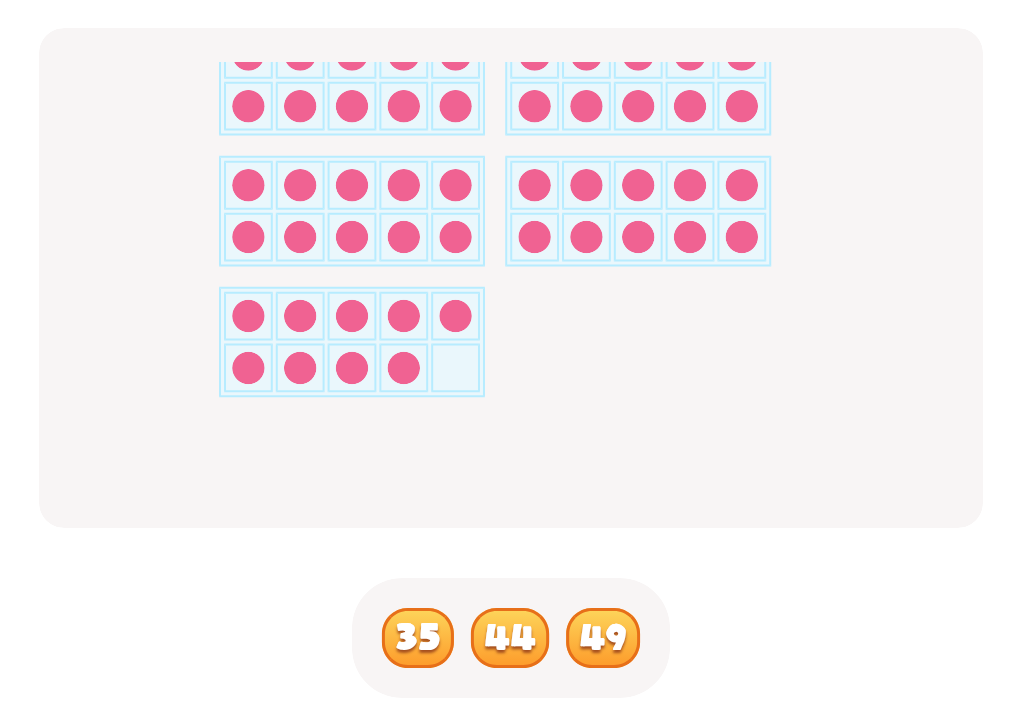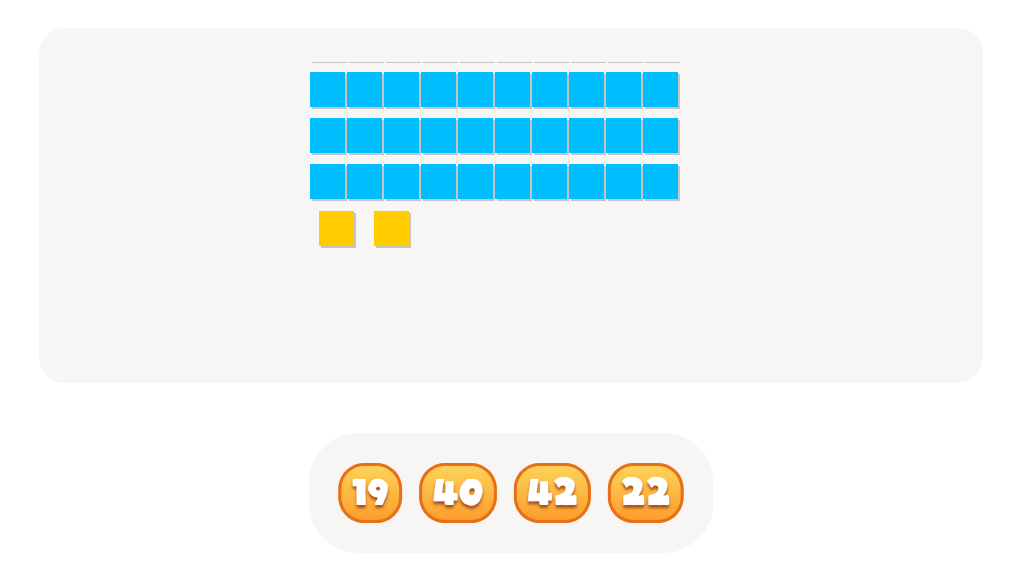Counting skills Easy Counting Worksheets for Ages 3-6
5 filtered results
-
From - To
Develop budding math minds with our "Counting Skills Easy Counting Worksheets for Ages 3-6". These printable activities are designed to make learning to count fun and engaging for young children. From identifying numbers to counting objects, our vibrant and age-appropriate worksheets build essential arithmetic foundations. Ideal for preschoolers and kindergarteners, each exercise encourages hands-on practice and boosts early math confidence. Watch as your little ones happily enhance their counting skills while preparing for more advanced mathematical concepts. Explore our collection to support your child's educational journey with interactive, enjoyable, and effective counting exercises!
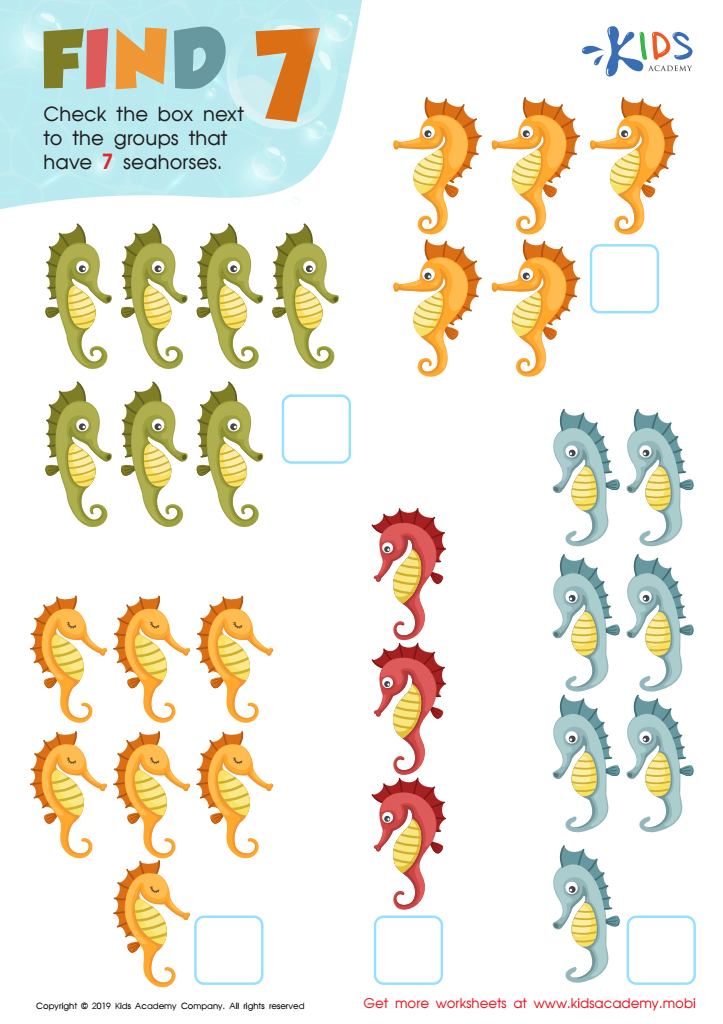

Find 7 Worksheet
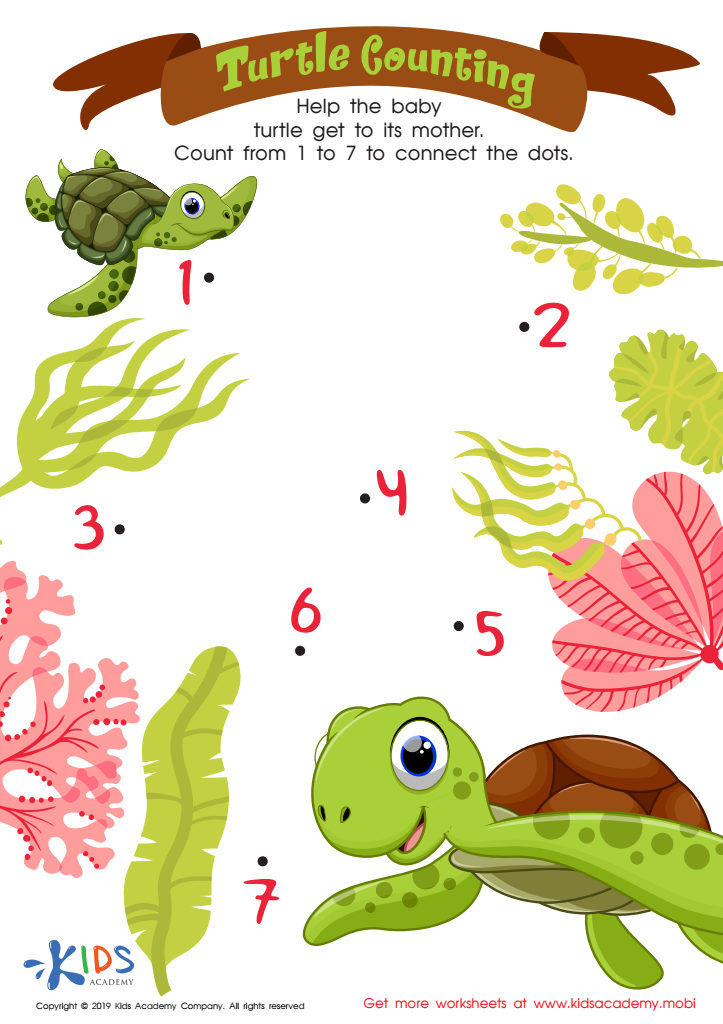

Turtle Counting Worksheet
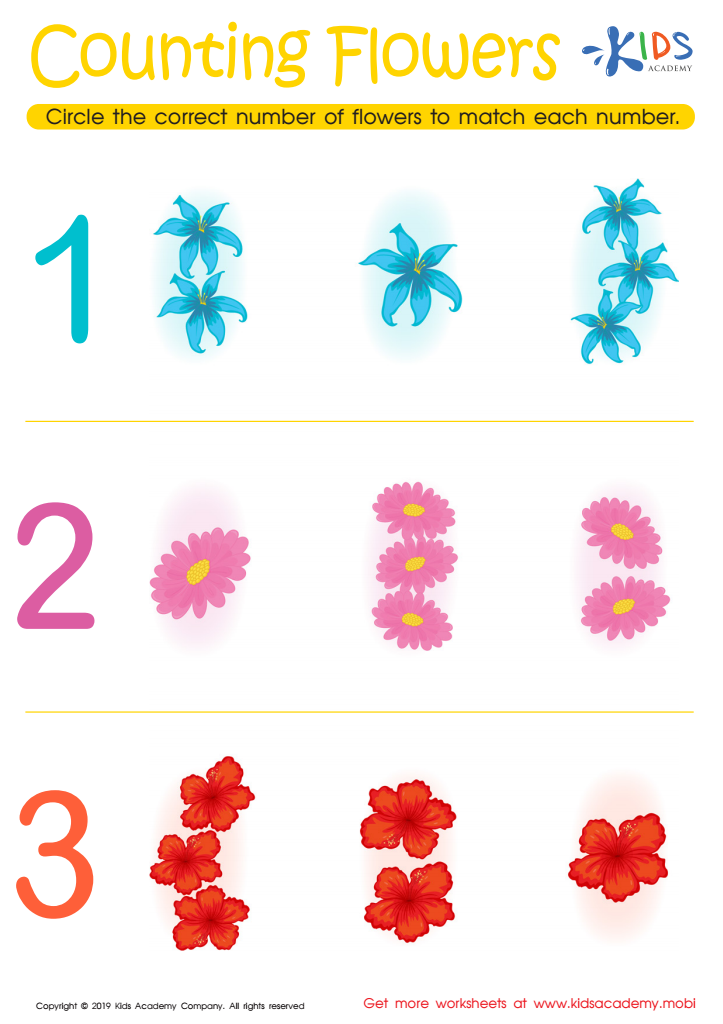

Counting Flowers Worksheet
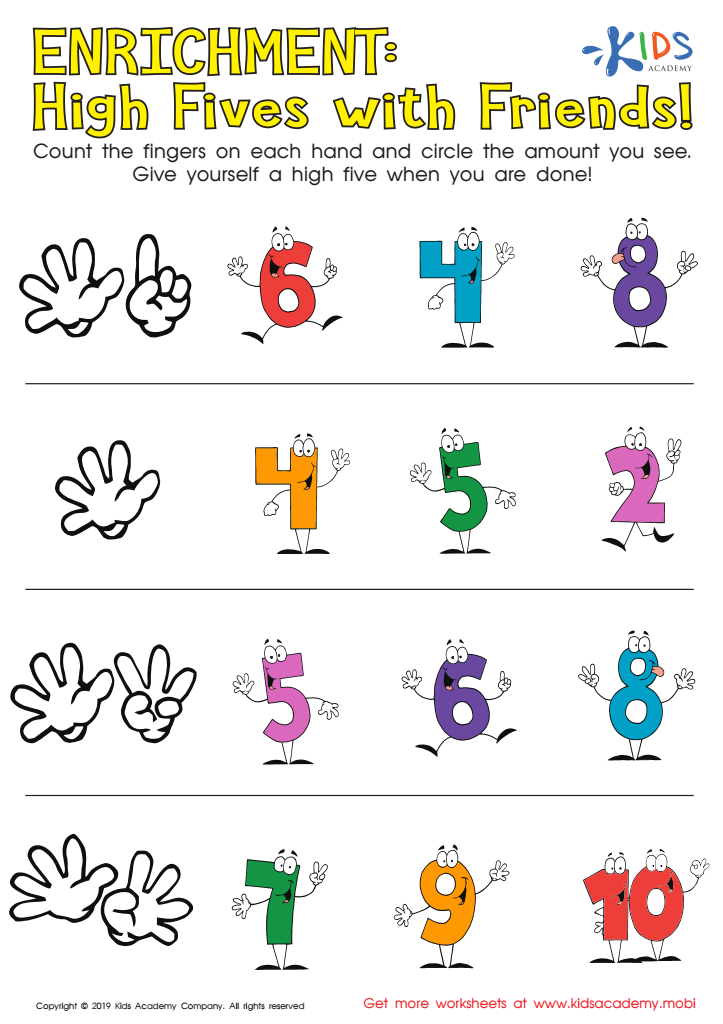

Enrichment: High Fives with Friends! Worksheet
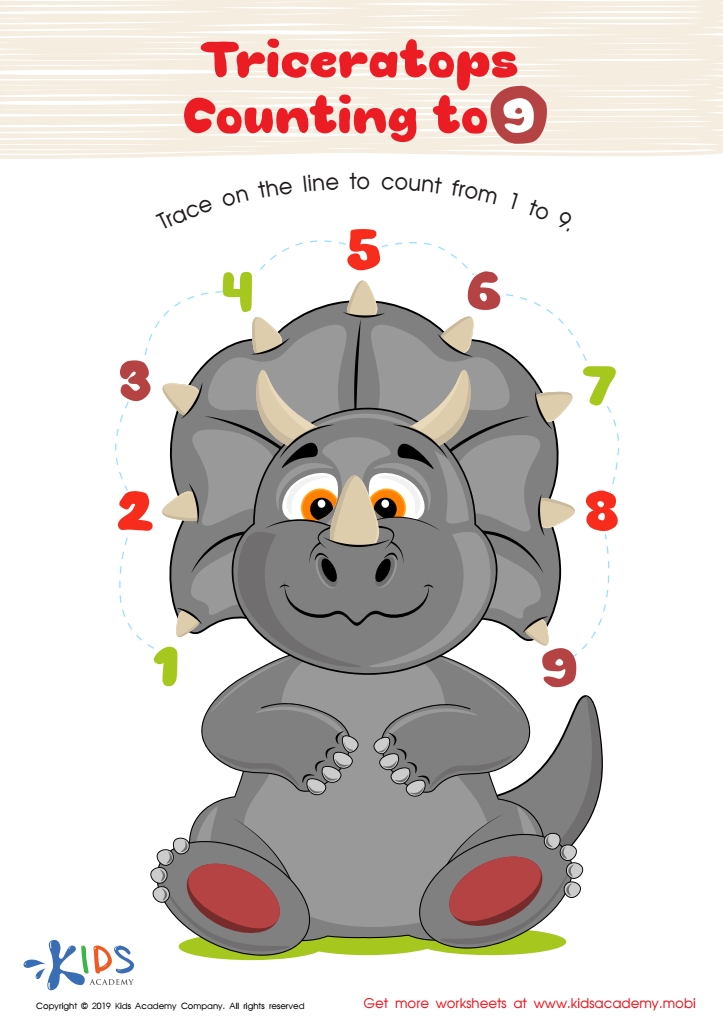

Triceratops Counting to 9 Worksheet
Counting skills are a fundamental component of early childhood mathematical development and set the foundation for more complex mathematical understanding. For children aged 3-6, mastering these skills is crucial as it directly influences their ability to grasp concepts related to numbers, quantities, and logic.
When parents and teachers prioritize easy counting exercises, they facilitate the development of critical thinking and problem-solving skills in young learners. These counting activities enhance fine motor skills through hands-on interaction with objects and improve cognitive abilities by challenging children to recognize patterns, understand sequences, and perform basic mental calculations.
Counting skills also promote language development and vocabulary as children learn number words and concepts like "more," "less," "equal," and "how many." This engagement provides a strong foundation for future learning in mathematics and other subjects.
Furthermore, early competence in counting can boost self-confidence and foster a positive attitude toward learning. Kids who master basic counting are more likely to experience success in their formative school years, encouraging a love for learning that can last a lifetime.
Therefore, by investing time in developing counting skills for children aged 3-6, parents and teachers can prepare them for future academic achievement and lifelong numeracy skills, influencing overall cognitive and emotional development.
 Assign to My Students
Assign to My Students
